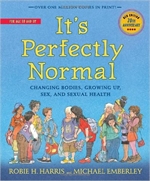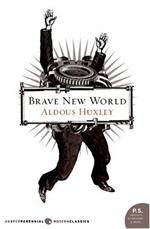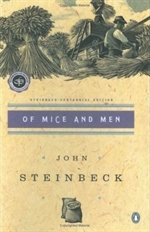-
About
- Annual Reports
- Awards, Grants, and Scholarships
- Bylaws
- Executive Board
- FAQ for Committee Chairs and Forum Managers
- ILA and Diversity, Equity, and Inclusion
- ILA Fiscal Policies
- ILA's Origins, Presidents, and Executive Directors
- ILA Store
- Remote Learning
- Strategic Plan
- Staff
- Frequently Asked Questions
-
Advocacy
- Submit Legislative Proposals to the ILA Public Policy Committee
- Advocacy Policies and Procedures
- More Than a Building
- Census 2020 Resources
- Creating or Changing Illinois State Library Law
- Illinois Minimum Wage Resources
- Intro to Property Taxes for IL Libraries
- ILA Public Policy Principles
- Legislative Issues
- Libraries and Immigration Enforcement
- Making Your Case
- Ready, Set, Advocate
- TIFs and Public Library Districts in Illinois
- Top Ten Advocacy Tips
- Unite Against Book Bans in Illinois
-
Committees
- Advocacy Committee
- Awards Committee
- Conference Program Committee, 2025
- Diversity Committee
- Finance Committee
- Fundraising Committee
- ILA Reporter Advisory Committee
- Illinois Libraries Present Committee
- Intellectual Freedom Committee
- iREAD Committee
- Nominating Committee
- Public Policy Committee
- Reaching Forward North Committee
- Reaching Forward South Committee
- Serving Our Public Committee
- Events
-
Forums
- Human Resources & Administration Forum (HRAF)
- Illinois Association of College & Research Libraries Forum (IACRL)
- Library Trustee Forum (LTF)
- Marketing Forum (MF)
- Resources & Technical Services Forum (RTSF)
- Small and Rural Libraries Forum (SARL)
- Students and New Professionals Forum (SANP)
- Young Adult Services Forum (YASF)
- Youth Services Forum (YSF)
- Initiatives
- Membership
- Publications
This bibliography represents books challenged, restricted, removed, or banned in 2003-2004 as reported in the Newsletter on Intellectual Freedom from May 2003 through May 2004.
Allende, Isabel
The House of the Spirits
Knopf; Bantam

Challenged, but retained in the advanced English classes in Modesto, Calif. (2003). The seven-member Modesto City School Board said administrators should instead give parents more information about the books their children read, including annotations of each text. Parents can opt their children out of any assignment they find objectionable.
Source: Newsletter on Intellectual Freedom, Jan. 2004, pp. 27-28.
Babbitt, Natalie
The Devil’s Storybook
Farrar

Challenged at the Chestnut Ridge Middle School in Washington Township, Pa. (2004). The complainants want the school district to seek parental approval before elementary and middle school students can check out books related to the occult.
Source: Newsletter on Intellectual Freedom, May 2004, pp. 117-18.
Blume, Judy
Deenie
Bradbury Pr.

Challenged by a parent in the Spring Hill Elementary School District in Hernando County, Fla. (2003) due to passages that talk frankly about masturbation. The board decided to retain the title, but require students to have written parental permission to access the novel.
Source: Newsletter on Intellectual Freedom, Jan. 2003, pp. 8-9; Mar. 2004, pp. 48-49; May 2004, pp. 95-96.
Chbosky, Stephen
The Perks of Being a Wallflower
Pocket Bks.

Removed as a reading assignment in an elective sociology course at the Massapequa, N.Y. High School (2003) because of its “offensive” content.
Source: Newsletter on Intellectual Freedom, Jan. 2004, pp. 12-13.
Clinton, Cathryn
A Stone in My Hand
Candlewick Pr.

Challenged, but retained in the Marion County Public Library System in Ocala, Fla. (2003) despite a complaint that the subject matter was too mature and the book “was written one-sidedly, specifically showing one party to be fully wrong.” Reviewers noted that the book is told from a Muslim perspective and that it can be taken to be anti-Israel. An Ocala resident noted that “this book will help further hatred of Jews, anti-Semitism, and hatred of Israel, on the part of children, that target audience.”
Source: Newsletter on Intellectual Freedom, Nov. 2003, pp. 227-28; Jan. 2004, pp. 7-8; Mar. 2004, pp. 47-48.
Clutton-Brock, Juliet
Horse
Knopf

Challenged at the Smith Elementary School in Helena, Mont. (2004) because a concerned parent “believes it promotes evolution.”
Source: Newsletter on Intellectual Freedom, May 2004, p. 97.
Cormier, Robert
We All Fall Down
Dell

Pulled from a Baldwin, Kans. ninth grade class (2003) by the school district superintendent because “it was clear to him it wasn’t fit for his own daughter or granddaughter.” The original complaint objected to fifty passages that contained profanity and sexual content.
Source: Newsletter on Intellectual Freedom, Nov. 2003, p. 229; Jan. 2004, p. 12.
de Haan, Linda and Stern Nijland
King & King
Tricycle Pr.

Restricted to adults in a school's library in Wilmington, N.C. (2004) because the children’s book is about a prince whose true love turns out to be another prince.
Source: Newsletter on Intellectual Freedom, May 2004, p. 97.
Ehrenreich, Barbara
Nickel and Dimed: On (Not) Getting By in America
Metropolitan Bks.

Criticized as the book chosen for the University of North Carolina at Chapel Hill, N.C. summer reading program (2003) by Republican state lawmakers, citing a “pattern” of the university being anti-Christian. In 2002, three freshmen sued the university over its choice of Approaching the Qur'an: The Early Revelations, by Michael A. Sells. The federal lawsuit was filed on the students’ behalf by the Family Policy Network, a Christian group based in Virginia. Courts later rejected the argument that the reading requirement violated the U.S. Constitution.
Source: Newsletter on Intellectual Freedom, Sept. 2003, p. 182.
Frank, Mel, and Ed Rosenthal
Marijuana Grower's Guide
Red Eye Pr.

Challenged at the Teton County Public Library in Jackson, Wyo. (2004) because “tax dollars are being used to purchase a how-to crime manual.”
Source: Newsletter on Intellectual Freedom, May 2004, p. 98.
Gaines, Ernest
A Lesson Before Dying
Knopf; Vintage

Removed from the college book store at Louisiana College, Pineville, La. (2004) by the college president because a love scene described in the book clashes with the school's Christian values.
Source: Newsletter on Intellectual Freedom, Mar. 2004, pp. 53-54.
Guterson, David
Snow Falling on Cedars
Harcourt; Thorndike Pr.; Vintage

Challenged, but retained in the advanced English classes in Modesto, Calif. (2003). The seven-member Modesto City School Board said administrators should instead give parents more information about the books their children read, including annotations of each text. Parents can opt their children out of any assignment they find objectionable.
Source: Newsletter on Intellectual Freedom, Jan. 2004, pp. 27-28.
Haddix, Margaret Peterson
Don't You Dare Read This, Mrs. Dunphrey
Simon

Banned from the Galt Joint Union Elementary School District classrooms in Sacramento, Calif. (2003) and restricted to students with parental permission in the middle school libraries. The novel discusses parental neglect, sexual harassment at an after-school job, and other stresses experienced by the young adult fictional character. The novel is on the ALA Best Books for Young Adults list.
Source: Newsletter on Intellectual Freedom, Mar. 2004, p. 52; May 2004, p. 98.
Harris, Robie H.
It's Perfectly Normal: A Book about Changing Bodies, Growing Up, Sex, and Sexual Health
Candlewick Pr.

Relocated from the young adult to the adult section of the Fort Bend County Libraries in Richmond, Tex. (2003). The same title was recently moved to the restricted section of the Fort Bend School District’s media centers after a resident sent an e-mail message to the superintendent expressing concern about the book’s content. The Spirit of Freedom Republican Women's Club petitioned the superintendent to have it, along with It’s So Amazing, moved because they contain “frontal nudity and discussion of homosexual relationships and abortion.”
Source: Newsletter on Intellectual Freedom, Jan. 2004, p. 9.
Harris, Robie H.
It's So Amazing
Candlewick Pr.

Relocated from the young adult to the adult section of the Fort Bend County Libraries in Richmond, Tex. (2003). The same title was recently moved to the restricted section of the Fort Bend School District’s media centers after a resident sent an e-mail message to the superintendent expressing concern about the book’s content. The Spirit of Freedom Republican Women’s Club petitioned the superintendent to have it, along with It’s Perfectly Normal: A Book about Changing Bodies, Growing Up, Sex, and Sexual Health, moved because they contain “frontal nudity and discussion of homosexual relationships and abortion.”
Source: Newsletter on Intellectual Freedom, Jan. 2004, p. 9.
Heinlein, Robert
Stranger in a Strange Land
Putnam

Challenged, but retained in the South Texas Independent School District in Mercedes, Tex. (2003). Parents objected to the adult themes--sexuality, drugs, and suicide--found in the 1962 Hugo Award-winning novel. Heinlein’s book was part of the summer Science Academy curriculum. The board voted to give parents more control over their childrens’ choices by requiring principals to automatically offer an alternative to a challenged book.
Source: Newsletter on Intellectual Freedom, Nov. 2003, pp. 249-50.
Huxley, Aldous
Brave New World
Harper

Challenged, but retained in the South Texas Independent School District in Mercedes, Tex. (2003). Parents objected to the adult themes--sexuality, drugs, and suicide--found in the novel. Huxley’s book was part of the summer Science Academy curriculum. The board voted to give parents more control over their childrens’ choices by requiring principals to automatically offer an alternative to a challenged book.
Source: Newsletter on Intellectual Freedom, Nov. 2003, pp. 249-50.
Jaivin, Linda
Eat Me
Broadway Bks.

Removed from the Marion County Public Library in Ocala, Fla. (2003). The library director noted that the Australian best seller was removed because the library lacks a designated erotica collection and the novel met only three of seventeen criteria used to evaluate books for acquisition. The county’s Public Library Advisory Board recommended that the library director retain the novel. The board’s vote was only a suggestion and the final decision went back to the library director. In Feb. 2004, the director reversed her earlier decision, reinstated the novel, and stated that her personal dislike for the book overshadowed her objectivity and adherence to policy.
Source: Newsletter on Intellectual Freedom, Jan. 2004, pp. 7-8; Mar. 2004, pp. 47-48; May 2004, pp. 115-16.
Kotzwinkle, William and Glenn Murray
Walter the Farting Dog
Frog, Ltd.

Challenged, but retained on the library shelves of the West Salem, Wis. Elementary School (2004) despite the book’s use of the word “fart” and “farting” twenty-four times.
Source: Newsletter on Intellectual Freedom, May 2004, p. 118.
Lebert, Benjamin
Crazy
Knopf

Removed from the Canyon Vista Middle School in Round Rock, Tex. (2003) by the principal who decided a parent was correct in being concerned about the book’s availability. The parent called the book “vulgar; it talked about parts of the body.” There was free use of the ‘F-word’ and several ‘C-words.’ The book was taken off the shelf at the district’s other junior high school library.
Source: Newsletter on Intellectual Freedom, Nov. 2003, p. 229.
Lee, Harper
To Kill a Mockingbird
Lippincott/Harper; Popular Library.

Challenged in the Normal, Ill. Community High Schools sophomore literature class (2003) as being degrading to African Americans. Challenged at the Stanford Middle School in Durham, N.C. (2004) because the 1961 Pulitzer Prize-winning novel uses the word “nigger.”
Source: Newsletter on Intellectual Freedom, Jan. 2004, p. 11; May 2004, pp. 98-99.
Lynch, Chris
Extreme Elvin
HarperCollins

Removed from the Crawford County, Ga. Middle School library (2003) because the book deals with complex issues teenagers confront.
Source: Newsletter on Intellectual Freedom, Jan. 2004, p. 9.
Morrison, Toni
The Bluest Eye
NAL

Challenged, but retained at the Kern High School District in Bakersfield, Calif. (2003) despite complaints of the book’s sexually explicit material.
Source: Newsletter on Intellectual Freedom, Mar. 2004, pp. 50-51; May 2004, pp. 118-19.
Myers, Walter Dean
Fallen Angels
Scholastic

Banned at the Franklin Central High School in Indianapolis, Ind. (2003) because of concerns about the book’s profanity. The book was assigned in English classes for sophomores.
Source: Newsletter on Intellectual Freedom, Jan. 2004, pp. 11-12.
Peck, M. Scott
The Road Less Traveled
Touchstone Bks.

Removed from the college bookstore at Louisiana College, Pineville, La. (2003), by the college president because “profane language in the book clashed with the school’s Christian values.”
Source: Newsletter on Intellectual Freedom, Mar. 2004, pp. 53-54.
Pilkey, Dav
The Adventures of Super Diaper Baby
Blue Sky Pr.

Challenged, but retained in the Riverside, Calif. Unified School District classrooms and libraries (2003), despite a complaint of the book’s “inappropriate” scatological story line.
Source: Newsletter on Intellectual Freedom, Sept. 2003, p. 201.
Rodriguez, Luis J.
Always Running
Curbstone Pr.

Challenged, but retained in three Beyer High School classrooms in Modesto, Calif. (2003) despite complaints that the book is “pornographic.” The decision reversed the actions of district administrators who had removed the book in early November 2003. The book won the Chicago Sun Times Carl Sandburg Literary Award and was designated as a New York Times notable book.
Source: Newsletter on Intellectual Freedom, Jan. 2003, pp. 27-28; Mar. 2004, pp. 51-52.
Rowling, J. K.
Harry Potter and the Chamber of Secrets
Scholastic

A federal judge overturned restricted access to the Harry Potter book after parents of a Cedarville, Ark. (2002) fourth-grader filed a federal lawsuit challenging restrictions, which required students to present written permission from a parent to borrow the book. The novel was originally challenged because it characterized authority as “stupid” and portrays “good witches and good magic.” Challenged, but retained in the New Haven, Conn. schools (2003) despite claims the series “makes witchcraft and wizardry alluring to children.”
Source: Newsletter on Intellectual Freedom, May 2003, p. 95; July 2003, pp. 137, 159.
Rowling, J. K.
Harry Potter and the Goblet of Fire
Scholastic

A federal judge overturned restricted access to the Harry Potter book after parents of a Cedarville, Ark. (2002) fourth-grader filed a federal lawsuit challenging restrictions, which required students to present written permission from a parent to borrow the book. The novel was originally challenged because it characterized authority as “stupid” and portrays “good witches and good magic.” Challenged, but retained in the New Haven, Conn. schools (2003) despite claims the series "makes witchcraft and wizardry alluring to children."
Source: Newsletter on Intellectual Freedom, May 2003, p. 95; July 2003, pp. 137, 159.
Rowling, J. K.
Harry Potter and the Prisoner of Azkaban
Scholastic

A federal judge overturned restricted access to the Harry Potter book after parents of a Cedarville, Ark. (2002) fourth-grader filed a federal lawsuit challenging restrictions, which required students to present written permission from a parent to borrow the book. The novel was originally challenged because it characterized authority as “stupid” and portrays “good witches and good magic.” Challenged, but retained in the New Haven, Conn. schools (2003) despite claims the series "makes witchcraft and wizardry alluring to children."
Source: Newsletter on Intellectual Freedom, May 2003, p. 95; July 2003, pp. 137, 159.
Rowling, J. K.
Harry Potter and the Sorcerer's Stone
Scholastic

A federal judge overturned restricted access to the Harry Potter book after parents of a Cedarville, Ark. (2002) fourth-grader filed a federal lawsuit challenging restrictions, which required students to present written permission from a parent to borrow the book. The novel was originally challenged because it characterized authority as “stupid” and portrays “good witches and good magic.” Challenged, but retained in the New Haven, Conn. schools (2003) despite claims the series “makes witchcraft and wizardry alluring to children.”
Source: Newsletter on Intellectual Freedom, May 2003, p. 95; July 2003, pp. 137, 159.
Schouweiler, Thomas
The Devil: Opposing Viewpoints
Greenhaven Pr.

Challenged at the Chestnut Ridge Middle School in Washington Township, Pa. (2004). The complainants want the school district to seek parental approval before elementary and middle school students can check out books related to the occult.
Source: Newsletter on Intellectual Freedom, May 2004, pp. 117-18.
Silverstein, Charles, and Edmund White
The Joy of Gay Sex
Crown; Simon & Schuster/Fireside

Challenged, but retained in the Marple Public Library in Broomall, Pa. (2004) along with several sexual instruction manuals including: Sex Toys 101: A Playfully Uninhibited Guide, by Rachel Venning; Great Sex Tips, by Anne Hooper; Ultimate Guide to Fellatio, by Violet Blue; and The Illustrated Guide to Extended Massive Orgasm, by Steve Bodansky because the books are “seriously objectionable in text and pictures due to the sexually explicit material.”
Source: Newsletter on Intellectual Freedom, Mar. 2004, p. 50; May 2004, p. 117.
Smith, Patrick
A Land Remembered
Pineapple Pr.

Challenged, but retained in the Indian River County Schools in Vero Beach, Fla. (2003) despite two parents’ complaints about racially offensive language. One of the parents said the book's use of the ‘N-word’ created a hostile learning environment for his children.
Source: Newsletter on Intellectual Freedom, Jan. 2004, p. 28.
Sones, Sonya
What My Mother Doesn't Know
Simon

Removed from the library shelves of the Rosedale Union School District in Bakersfield, Calif. (2003) because of discomfort with Sones's poem, “Ice Capades”--a teenage girl’s description of how her breasts react to cold.
Source: Newsletter on Intellectual Freedom, Nov. 2003, p. 227.
Steinbeck, John
Of Mice and Men
Bantam; Penguin; Viking

Challenged in the Normal, Ill. Community High Schools (2003) because the book contains “racial slurs, profanity, violence, and does not represent traditional values.” An alternative book, Steinbeck’s The Pearl, was offered but rejected by the family challenging the novel.
Source: Newsletter on Intellectual Freedom, Jan. 2004, p. 11.
Stine, R. L.
Double Date
Scholastic

Removed from the Crawford County, Ga. Middle School library (2003) because the book deals with complex issues teenagers confront.
Source: Newsletter on Intellectual Freedom, Jan. 2004, p. 9.
Taylor, Mildred D.
Roll of Thunder, Hear My Cry
Bantam; Dell

Challenged, but retained as a part of the Seminole County, Fla. school curriculum (2004) despite the concerns of an African American couple who found the book inappropriate for their thirteen-year-old son. The award-winning book depicts the life of an African American family in rural Mississippi in the 1930s and uses the word “nigger.”
Source: Newsletter on Intellectual Freedom, Mar. 2004, pp. 75-76.
Trueman, Terry
Stuck in Neutral
HarperCollins

Challenged, but retained on the reading list for eighth-graders at the Evansville, Wis. High School (2003) despite concerns about profanity, sexual imagery, and violence.
Source: Newsletter on Intellectual Freedom, Jan. 2004, p. 13.
Twain, Mark [Samuel L. Clemens]
The Adventures of Huckleberry Finn
Bantam; Bobbs-Merrill; Grosset; Harper; Holt; Houghton; Longman; Macmillan; NAL; Norton; Penguin; Pocket Bks.

Challenged in the Normal, Ill. Community High Schools sophomore literature class (2003) as being degrading to African Americans. Pulled from the reading lists at the three Renton, Wash. high schools (2004) after an African American student said the book degraded her and her culture. The novel, which is not required reading in Renton schools but is on a supplemental list of approved books, was eventually retained for classroom usage.
Source: Newsletter on Intellectual Freedom, Jan. 2004, p. 11; May 2004, p. 91.

 iREAD Summer Reading Programs
iREAD Summer Reading Programs Latest Library JobLine Listings
Latest Library JobLine Listings